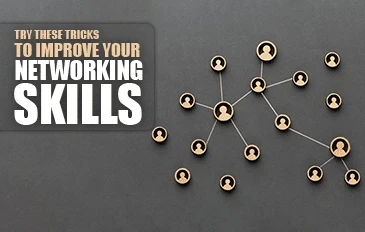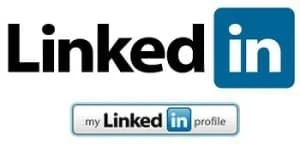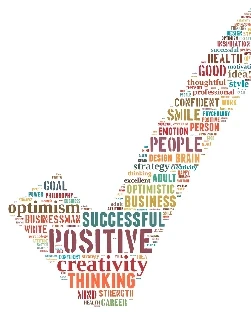Try These Seven Tricks to Improve Your Networking Skills

Try These Seven Tricks to Improve Your Networking Skills
Networking is one of the most important aspects of a successful career, but it can also be one of the most intimidating. For most people, the thought of walking into a room full of strangers and trying to make connections is overwhelming. But, like anything else, it can be learned and improved on with practice. These tricks will help you get started.
Do Your Research in Advance
The best way to feel confident is to know what you’re hoping to achieve. Before attending a networking event, take some time to learn about the people who’ll be in attendance—read their biographies, any articles they’ve written, and some information about their business, and consider what exactly you can offer them. This research will give you a better sense of who you might want to talk to and what topics might spark their interest. It’ll also help you come up with conversation starters, focus on your goals for the event, and make a good impression. Review your elevator pitch so you’re prepared to introduce yourself confidently.
Arrive Early
Environmental cues can greatly impact our mood and behavior, so it’s important to be mindful of the messages you send with your body language when you’re networking. Arriving early at an event is a great way to show interest and enthusiasm. It gives you the opportunity to scope out the room, chat with other attendees before the event gets too crowded, and get a feel for the atmosphere; it can also help you avoid the awkwardness of being one of the last people to arrive.
Be an Active Listener
One of the most effective networking skills is active listening. Listen attentively to what the other person is saying. Show genuine interest in their work and experiences. The best way to build rapport with someone is to ask them questions about their job and hobbies: not only does this make conversations more interesting, it also shows the other person that you’d like to get to know them better. People are more likely to remember you if they feel like you truly listened to them and invested in the conversation. Take the initiative and be friendly and engaging. Smile, make eye contact and exude positive energy.
Dress for Success
You never get a second chance to make a first impression, so it’s important to dress for the occasion. Choose an outfit that’s both stylish and professional, and that makes you feel confident. It’s also important to pay attention to your grooming, so ensure your hair is styled. If you wear makeup, make sure it’s minimal; you want people to focus on your conversation, not your appearance. Finally, avoid wearing strong fragrances, as some people may be allergic or dislike the smell. You’ll feel more confident when you look your best and can make a better impression on potential contacts.
Bring Plenty of Business Cards
Even if you aren’t seeking new business contacts, always bring business cards so people can be reminded of your conversation after they leave the event. And don’t forget to personalize them with something unique about yourself. Business cards are an excellent way to leave a lasting impression and can be a valuable tool for developing meaningful engineering relationships. They’re also an easy way to exchange contact information and can help people remember who you are and what you do. So before heading out to that event, make sure you have plenty of business cards with you. That way, you’ll be prepared to make new contacts and easily hand out your information. By staying connected with the people you meet, you can build strong relationships that can lead to your career advancement.
Start Small
Another effective approach to improving your skills is to start small. Rather than trying to approach everyone in the room at once, start by talking to one or two people who interest you. This will give you a chance to practice your conversation starters and help you feel more comfortable talking to new people. It’ll also make networking less overwhelming and allow you to focus on building relationships rather than collecting contacts. Once you’ve mastered the art of conversation starters, you can start approaching larger groups of people with confidence.
Follow-Up After the Event
After attending a networking event, it’s important to follow up with the people you meet. You can do this by sending a quick email or LinkedIn message. Mention something you talked about in conversation and invite them to keep in touch. Following up shows that you’re interested in developing a relationship, which may even lead to a future opportunity.
Conclusion
If you’re not a natural networker, never fear. These tips and tricks can help anyone to become a skilled networker. The most important thing is to get started and to keep working at it. The more practice you have, the more confident you’ll become. And who knows? Over time, you might even come to enjoy networking. So go out there and start meeting people—you never know who you’ll meet, or where your next opportunity will come from.
Michael DeSafey is a leading executive recruiter for professionals in the construction, engineering, and environmental industries. He is currently the President of Webuild Staffing: www.webuildstaffing.com. To learn more about Michael, or to follow his blog, please visit www.michaeldesafey.com.
7 Steps To Create A Marketing Plan For Your Career In the Construction Industry

7 Steps To Create A Marketing Plan For Your Career In the Construction Industry
7 Steps To Create A Marketing Plan For Your Contracting Business the construction industry is vital to surviving in this competitive marketplace. A marketing plan is your own customized “roadmap” to advance your career and/or business throughout the year. It is an internal planning mechanism to keep you focused and to help you reach your goals as a contractor / business owner. There are seven important steps to devise a well-developed marketing plan.
Step 1: Develop an overview. You need to answer questions such as why you are in the construction business, and your marketing goals and priorities either to find a job and/or to gain new clientele. What kind of services do you provide such as commercial, residential, new construction only, or do you accept tenant improvement jobs on existing buildings?
Step 2: Create your brand. What type of image do you want to create for your customers? How do you convey this image to the public? Think about how your past employers and/or customers would describe your abilities. Do you provide a specialty service, or are you known for intangibles such as having integrity and transparency?
Step 3: Define your differential advantage. What sets you apart from your others? Why do your customers come to you over other companies? Do you go that extra mile and do things above and beyond what is expected? Maybe you only use the highest grade of materials. For example, why would a person building their own home choose you to build it over another company? This is your differential advantage.
Step 4: Determine your target markets. Who are your clients? Write in detail a profile of who does business with you. Their ages, location, position, and so forth, and of who you want to do business with, and whether you do residential or commercial work.
Step 5: Determine your online presence. Do you have a website? Should you? Think about the potential benefits from online marketing and the amount of potential clients you could reach.
Step 6: Decide your strategic action plans. Design a marketing campaign and specific techniques to put your plan in motion. Is it realistic and does it fit into your budget? Do you stand to profit from your ideas? Do your ideas represent your company well?
Step 7: Put your plan in motion. Implement your marketing plan and campaigns. Remember, your plans are not written in stone. You can throw out ideas that aren’t working and implement new strategies where necessary. Don’t be afraid to try new ideas and keep tabs on your competition and learn what works for them.
Developing a successful marketing plan is overwhelming to some business owners, and understandably. It is an involved process, but absolutely vital to your company’s success. You will need to take advantage of everything your company can benefit from in today’s competitive market. It will be your key to achieving your goals and becoming successful contractor in the construction industry.
Michael DeSafey is a leading executive recruiter for professionals in the construction, engineering and environmental industries. He is currently the President of Webuild Staffing www.webuildstaffing.com . To learn more about Michael or to follow his Blog please visit www.michaeldesafey.com
How LinkedIn Can Boost Your Professional Brand..

How LinkedIn Can Boost Your Professional Brand..
Harness The Power Of LinkedIn And Boost Your Professional Brand
With over 259 million members on LinkedIn, there is no better platform to tell your professional story on than LinkedIn. LinkedIn is a great place to show others who you are, connect with them, and keep them updated on your career and professional life.
Using LinkedIn to boost your professional brand can help you stay in the minds of others when they are looking for people like you to do business with. This is because users with more complete profiles are ranked more highly in LinkedIn search results and have higher visibility. In addition, using keywords in your profile and joining LinkedIn groups will also affect your search ranking.
Thus, to get started with revamping your LinkedIn profile, you will want to see how strong your profile is – which you can easily do by checking your LinkedIn profession strength notification. LinkedIn suggests you have a photo, detailed descriptions of your professional experiences, a summary, at least five skills, 50 connections, and your postal code to ensure “profile completeness”.
Now you’ll want to make sure your headline has keywords relevant to your skills and experiences. What would people be searching for if they want to find a professional like you? Think of that keyword and make it a part of your headline. Repeating strategic keywords throughout your profile will cause you to rank higher in search results. You can check your work by searching for specific keywords in your profile to see where you rank in the results.
Recommendations and endorsement are also a great way to show recruiters and other people in your industry that you’ve made good impressions in your professional circle. This being said, it’s a good idea to reach out to co-workers and colleagues and ask for a recommendations. Publishing documents or project literature will also help increase your overall professional appearances.
If you are comfortable with writing, another way to boost your professional brand with LinkedIn is to write content. Have you been involved in a professional situation that you learned a lot from? Do you have insights in your industry that have not been written about before? If so, share these experiences with your LinkedIn peers. Post updates, links, etc, this is a great way to engage people, demonstrate your professional aptitude and start conversations.
Should you need some professional assistance to develop your LinkedIn Professional Profile, there are many great articles online, as well as, many consulting services available that are affordable and get you results effectively within the LinkedIn Platform.
Michael DeSafey is a leading executive recruiter for professionals in the construction, engineering and environmental industries. He is currently the President of Webuild Staffing www.webuildstaffing.com . To learn more about Michael or to follow his Blog please visit www.michaeldesafey.com
Branding? Have you created a professional brand that matches your career objectives

Branding For The Professional Career
Branding? Have you created a professional brand that matches your career objectives
Branding? Have you created a professional brand that matches your career objectives.
We all know about the branding tactics large companies use every day to gain loyal customers, but have you ever stopped to consider the importance of personal branding for yourself during your job search journey?
Personal branding is the latest buzzword being used by career coaches as a marketing tool for jobseekers. It is quite similar to the “elevator speech” that we have all been taught to have prepared; a quick speech for someone that tells them who you are, what you do and what your goals are. A personal brand takes this concept, but goes more in
depth and is more encompassing of the concept. Personal branding puts more of the emphasis of marketing your identity to others rather than just quickly “selling” yourself in a brief encounter.
Personal branding allows you to control how others see you and this control allows you to determine your own path and goal setting. Personal branding can also be compared to your own personal mission statement in that it is a clear statement of who you are, who you want to be and how you are planning to obtain it. Not only will it keep you on track for the results you have set for yourself, but it also allows you to ensure how others view you and your career goals.
When creating your personal brand have a particular goal in mind (job, career, company) and be mindful of their image, as well as, that which you have for yourself. Qualities that may be considered a strong personal brand with one company or career type may not be compatible with another and may need to modified and customized appropriately during a job search – always make sure it is relative and compatible.
When creating your personal brand carefully consider what words describe you, what your achievements have been and how you want others to view and describe you. This is also an opportunity to really look at yourself and make sure you are the individual you strive to be. Do you have any expert qualities? Are you consistent with who you want to represent? Do others view you the same way you view yourself? Before committing to a personal brand, you may need to take a hard look at some of these traits and make any modifications necessary to yourself to fit the brand you visualize for yourself.
Once you have decided how you want to brand yourself make sure everything that you do fits that brand. Your actions, projects, goals, clothing, personality and more must fit into the brand you have designed for yourself. For a complete branding of yourself make sure all areas of your life run parallel and reflect the vision. With our modern technology today this means not just your work life, but also includes your personal life, and your social media life. With that being said, it is imperative that you be present and up to date on social medial (Facebook, twitter and LinkedIn at a minimum), but your postings must match your personal branding. This means tasteful and interesting posts online; reviewing your account settings to avoid any involuntary photo tagging or postings being viewed by potential employers that may not be consistent with our brand image.
Employers are using social media more and more in their search for new employees, so much so, in fact, that your social media profile can be the difference between getting an interview or being overlooked during the early stages of the interview process.
Taking the time to create a brand image and consistently living up to those standards you set for yourself will allow you to advance your career within in the directions you desire, with exceptional career opportunities.
Michael DeSafey is a leading executive recruiter for professionals in the construction, engineering and environmental industries. He is currently the President of Webuild Staffing (www.webuildstaffing.com). To learn more about Michael or to follow his Blog please visit www.michaeldesafey.com
Searching For a Job? Ways To Stay Positive And Have A Productive Job Search

Searching For a Job? Ways To Stay Positive And Have A Productive Job Search
It has been shown through various studies that unemployment has the ability to affect ones mental and emotional health. Serious conditions such as an anxiety, depression, and insomnia are common trends seen in unemployed professionals while they are seeking new employment.
In today’s marketplace it is estimated that the average job search takes approximately 30 to 40 weeks of active job searching to find your next career opportunity. Over this period of time many professionals feel like they are losing their professional identity, self-confidence and sense of security as the job search progresses.
Going on interview after interview; with no job offers can bring anyone’s self-esteem down. Human resources and hiring managers are very keen individuals and they can recognize when an individual who is interviewing with them is struggling or depressed. This has a strong impact on your chances of obtaining your next career opportunity. Having a strong support network and coping mechanisms in place that you can rely on will aide you greatly in keeping positive and making the right impression on job interviews.
Find A Group Of Trusted Advisers
When you are searching for a job you may feel alienated from the rest of the world. It is important to not cut yourself off from the business community. Developing relationships with like mind professionals; individuals you have worked with in the past, civic leaders, people you respect and trust will allow you to stay up to date and connected. It will also allow you to communicate your thoughts or ask for advice as you progress through the hurdles in your job search.
Volunteer To Work With A Non-Profit
Going from working 40 hours a week to sitting at home all day can greatly impact your self-esteem. There were many reasons you worked, the since of accomplishment, the pride of the job you were doing, the people you were helping, etc.. All of which can be recaptured by working for a non-profit, even if you are not being paid. It will also allow you to network with business leaders provide you a sense of daily purpose and greatly improve your emotional outlook as you search for a job.
Be Positive
Projecting a sense of positivity and showing a sense of purpose will greatly aide you job search and interviewing success. Individuals that are depressed or downbeat typically drive employers away from hiring them. You want to demonstrate in your life a positive sense of purpose.
There are many ways to do this, but the most effective is reflecting on your past accomplishments, your skills, and abilities, family life. You need to remember that you can provide a valuable contribution to any organization. You past employer saw this, that why they hired you. Take some time to write down these accomplishments and place them somewhere you will see every day. This will greatly help you project a positive outlook in your job search.
Utilize Social Media And LinkedIn
Social Media can be a great tool to utilize in searching for a job, as well as, connecting with folks around the world that have common professional interests. Use your LinkedIn profile to showcase your skills, accomplishments, connect with like-minded professionals and share your ideas through these platforms.
You will be surprised how quickly you build your professional network of contacts and how you will be recognized by employers and individuals alike in your profession.
Find A Local Support Group
Having professional contacts and advisors are all great; but there are times when you need to rely on individuals that maybe outside your professional life. Finding a local support group maybe the answer for you.
Often the thought of going to a support group at your local church or community center may seem a little extreme. The general perception is that people who go to these meetings have problems and need help, but in reality most people who go to these meetings are just like you. They are trying to share their stories, experiences, see what others are encountering while working through their particular situation.
People find they are good places to talk with resourceful individuals, be accepted and learn new things to help them in their job search process. Most people end up building long term friendships with people that last years.
Make Sure You Allow Some Time For Yourself
When you are searching for a job you mind is in a constant state of worry. Where will your next job come from? How are you going to find it? Who should you be calling? Sending resumes to?
You do not want your entire life obsessed with finding a job, it’s emotionally and physically unhealthy. You still have a life, interests, friends and family. Take time to enjoy those interests and step away from the job search regularly. It will greatly help your emotional state of mind and health.
Michael DeSafey is a leading executive recruiter for professionals in the construction, engineering and environmental industries. He is currently the President of Webuild Staffing (www.webuildstaffing.com). To learn more about Michael or Follow his Blog please visit www.michaeldesafey.com
How To Find And Hire The Best Employees For Your Business.

How To Find And Hire The Best Employees For Your Business.
Whether you’re a business owner, chief executive, project manager or HR Manager; you know lot a time goes into finding the right employees for your organization. The success of every business depends on the abilities of its staff and their ability to work as a team to achieve success.
One of the biggest questions many hiring managers have is: How do you find the best talent in the marketplace and how do you know which people to hire?
Do you place job advertisements? Scour through resume stacks? Interview as many people as you can? Retain recruiters? Well, the simple answer is Yes; but to hire the best talent in the industry you need to know who is working in your industry and you need to have an existing relationship with them.
Anyone can place a job advertisement and look through resume after resume until you interview and hire a candidate that best matches your requirements at that time. As a manager, though you need to build a long term outlook into your recruitment strategy. Look at your projects and/or corporate needs 1 year in advance. Determine what roles and skills your organization may potentially need and keep your eyes open for individuals with those skills. Even if you cannot hire then currently.
Simply posting job advertisements when you need to hire for a job opening will never allow you to find exceptional talent. Your job advertisement only targets individuals looking for a job at a specific point in time. Your organization always needs to be looking for high quality talent. Holding open houses, career fairs, talking with other professionals and leaders in the industry, showcasing your organization to the public.
As a manager though, you need to remember the highest quality and best talent in your industry will never actively be looking for a job. They already have one!! An employer searched them out, courted and hired them. You now need to do the same!! You need to find out who these individuals are, build relationships with them and hire them when the time is right.
You will want to attend professional association networking events, go to lunch with your competitors, talk to your clients about who they know and have experience working with, and/or search LinkedIn and other social media outlets for individuals with specific expertise and connect with them. Establishing relationships and simply take some time to get to know people, their careers, what projects they are working on, what motivates them, and where they see their career going, etc. will allow you as a manager when the time is right to select and make the right strategic hire quickly and efficiently.
But they may not be looking for a job?? Wrong!! You will be surprised how open people are about learning about a new career opportunity when approached. 90% of the currently employed workers will never turn down a potential new opportunity. Everyone is always looking for something better!! By having an existing relationship with them, the courting process is much more efficient, effective and beneficial to the organization doing the hiring.
You already know what makes the candidate tick, what they enjoy, where their expertise is, the type of personality they have, etc.. The relationship is already established all you need to do now is reel them in and make sure the position you have matches their desires, salary and career advancement needs.
Managers that are always building relationships and keeping their eyes open for exceptional talent in the course of their daily business activities will never find themselves lacking exceptional talent for a growing organization. Their businesses will be thriving, while others are still posting job ads and interviewing candidates.
Michael DeSafey is a leading executive recruiter for professionals in the construction, engineering and environmental industries. He is currently the President of Webuild Staffing (www.webuildstaffing.com ). To learn more about Michael or Follow his Blog please visit www.michaeldesafey.com
Business Networking Events?? Strike Up A Conversation..

Business Networking Events?? Strike Up A Conversation..
As a professional recruiter who has been working and recruiting professionals in the environmental, engineering and construction industries for over 18 years now at Webuild Staffing, I have found business networking events are a great place to connect with professionals within any market niche. They offer career minded professionals a great avenue to meet new people and expand their professional connections and set the stage for new career opportunities.
Most professions offer some sort of professional associations or networking that bring likeminded individuals together; but the thought of prospecting and starting meaningful conversations with strangers at these events can be a frightening to some individuals. By utilizing these basic tips starting a conversation will be an ease.
First Impressions Count!!!
You should always remember that the first impression you make when meeting a new person, effects how they will perceive you in the future. The first few minutes of a conversation will affect your relationship with them going forward; so always be confident, make eye contact, smile, speak with a clear strong voice and be confident in your skills and qualifications. A pleasant, secure introduction will always open the door to an effective and rewarding conversation.
Question, Question, Question….
Asking smart, inquisitive questions of people will allow you to start a conversation by learning about others. By showing interest in others will open up a line of communication that sincerely shows your interest in getting to know someone or their business. Questions that are thoughtful, that spark an individual’s interest are the best. Asking open ended questions that spur conversation; like, how long have you been in your current role at the company? What are your products like? How is their business doing? Who else from their organization is at the event? are all good questions that allow a conversation to grow.
Business, Business, Business!! Talk About Something Else…
Professional networking events are always about business. People talk about business all day, but they do have other interests and aspects to their lives. Opening conversations up to other interests; holiday events, families, sporting events, etc.. all allow people to relax and have more rewarding conversations that are memorable.
Studies have shown that individuals that can relate on a more personal level, have a greater chance of working together than those that strictly revolve around business interests.
Controversy!!! Avoid It At All Costs…
When we say first impressions count; meeting people for the first time and bringing up or discussing controversial subjects will always lead to failure. Always try to keep your conversations light and avoid subjects that are controversial. As a rule of thumb politics, race, religion, sex are all good subjects to avoid until you have a deeper lasting relationship with someone.
Find Common Interests..
The best way to strike up a conversation with someone is to have a common interest. It builds respect and a personal level of rapport with someone almost instantly. This can be both working within the same industry, company, or simply having the same hobby, etc.. Learning about individuals interests will allow you to strike up a conversation quickly.
Breaking the ice and having meaningful conversations takes some practice and may not go as planned immediately, but continuing to have conversations and meet new people will effectively develop your conversational skills and expand your career prospects as you grow as an individual.
Michael DeSafey is a leading executive recruiter for professionals in the construction, engineering and environmental industries. He is currently the President of Webuild Staffing (www.webuildstaffing.com). To learn more about Michael or Follow his Blog please visit www.michaeldesafey.com
